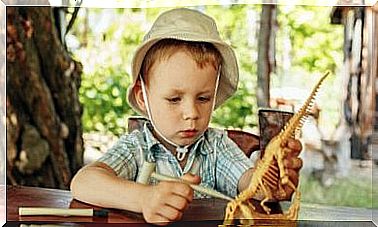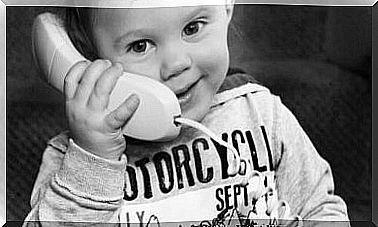Theater In School Lessons: Advantages For Children
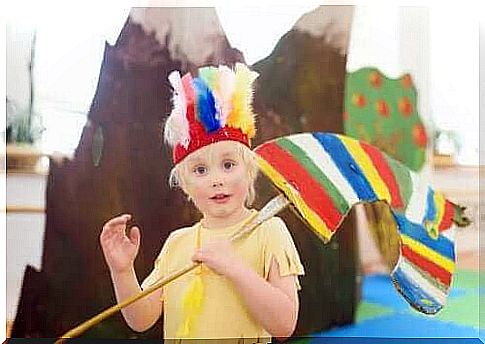
Theater in school lessons is a very valuable way to give your children a holistic development and education. In addition, children can learn and have a lot of fun.
When theater activities are integrated into the classroom, it helps the children develop various skills. You can discover a variety of forms of expression and develop your creativity.
In his book Children’s Theater in Spain: A Challenge , Fernando Aleman notes that we often consider children’s theater and theater separately. Still, it is important to know that children’s theater is a unique and universal concept.
Scenic or role-playing games, often in the form of fantasy games, are a natural part of many children’s lives before they go to school or preschool. Through these games they can discover their own identity by discovering invented situations with the structures that correspond to the real world.
What do we mean by theater in school lessons?
When we talk about theater as part of bringing up children, we mean theater plays in which children play an active part. In addition, there are also many plays that are specially written and staged for this target group. The children are the audience here.
In today’s article we will talk about plays in which children actively participate and play. You can decide for yourself which pieces you want to perform. However, they are accompanied and supported by their teachers throughout the process.
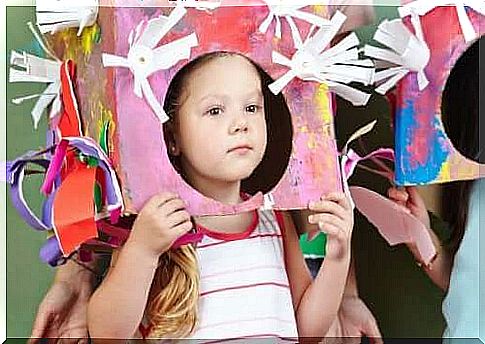
The Spanish writer and screenwriter Armonía Rodríguez Lázaro tells us the aspects that should be fulfilled in every play that is performed by children:
- The piece should be performed in the classroom.
- In addition, all children should be involved in the performance.
- The child is the actor and the protagonist.
- In addition, improvisation is the basis of this activity.
- The teacher should guide students while encouraging them to be creative.
- In order to encourage free expression in children, it is very important that the playful quality of the theater is preserved.
- Furthermore, the lyrics shouldn’t be too theatrical.
- Music, dance and visual design are essential elements that complement and complete the staging .
Skills development
Since children love to move around and interact with others, theater is a perfect activity. Because here the children can do just that. Plus, they don’t have to sit still and listen. When acting in theater, they are allowed to move and speak to one another.
These acting activities support the children in learning basic skills such as creativity, research, communication, empathy, self-esteem, cooperation, leadership and negotiation skills.
Learning new things through theater
In schools, theater can be used very effectively in many different subjects. Especially in German lessons , children can learn to read and write at an early age in a playful way.
In addition, acting helps children improve their oral expression; they learn to listen and expand their vocabulary. In addition, the children learn to understand and express different points of view.
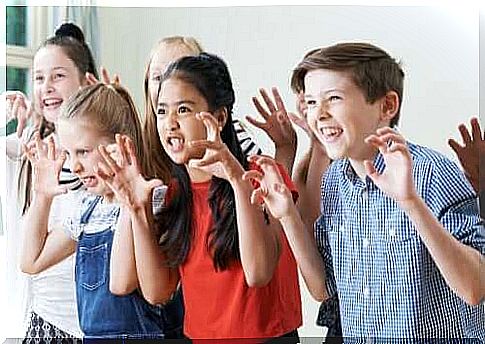
Through the theater, children learn to express their emotions. You can do all of this in an environment that is designed for that very purpose. They also discover both their own and the cultural values of their classmates, which fosters mutual understanding.
In addition, acting is an activity that allows children to think and act creatively. They also learn problem-solving skills that they can apply in all areas of life and learning. You start by taking responsibility and making your own decisions.
Teachers can be more open in class because they can focus on both the learning process and the goal.
The children can play an active role in their learning process by acting. They can develop this active role further in the course of their school development. In addition, structured acting is a wonderful development tool for children.
